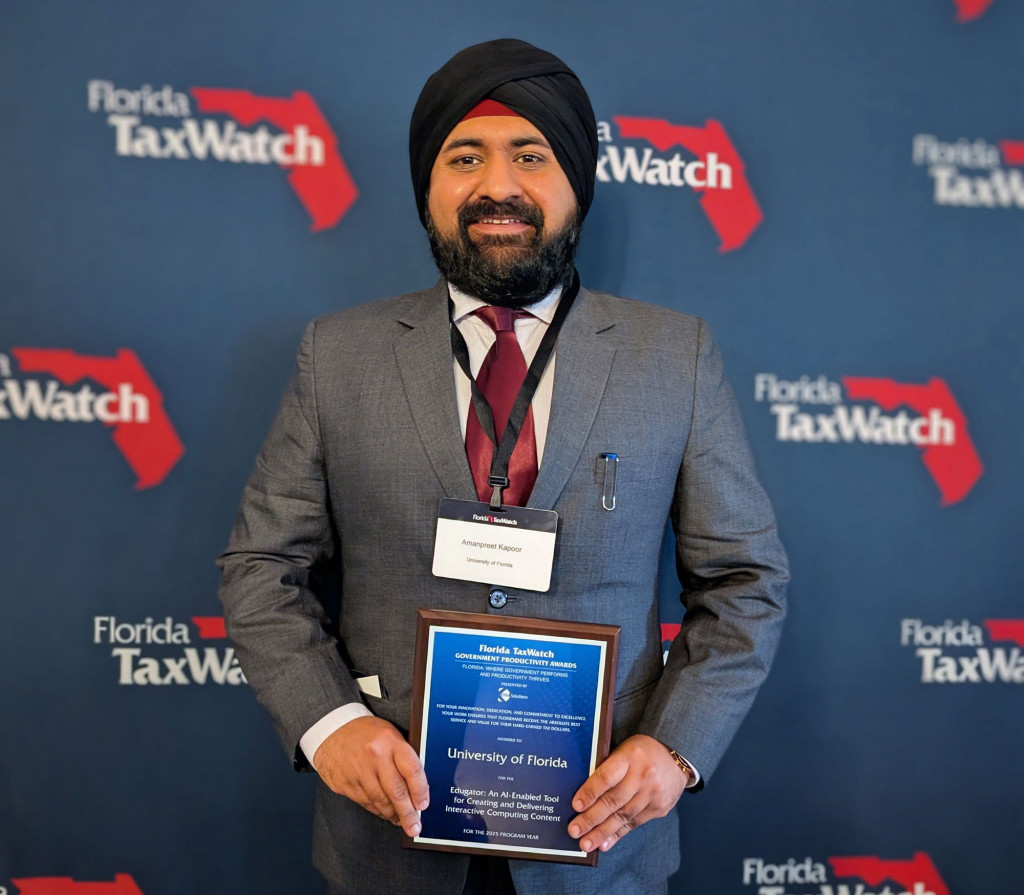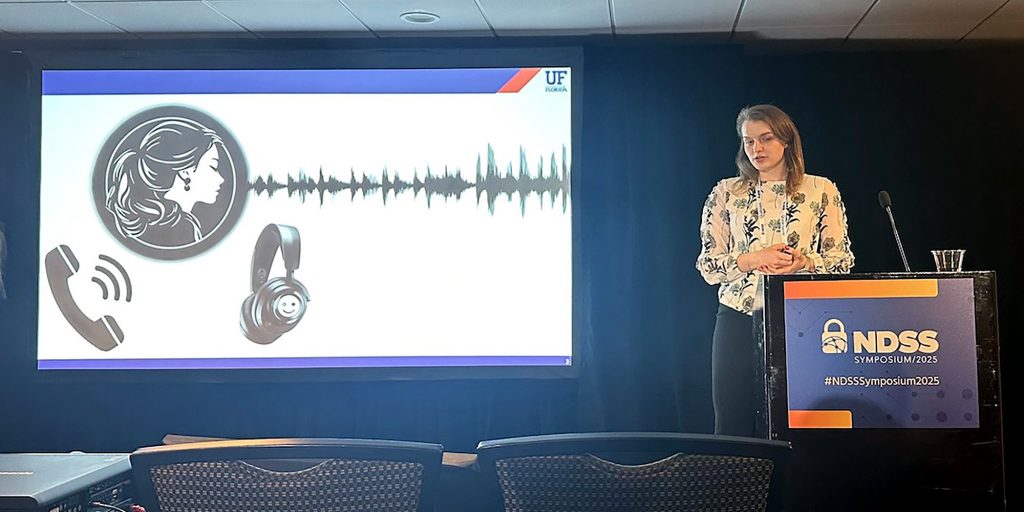Category: Department of Computer and Information Science and Engineering

Award-winning UF team targets nonconsensual nude photo apps to protect privacy
January 6, 2026Researchers from the University of Florida, Georgetown University and the University of Washington have earned the NYU Center for Cybersecurity Awareness Week’s Social Impact award for their study of AI-based nudification apps that generate nonconsensual nude images in seconds.
Read more »
UF researchers develop new training method to help AI tools learn safely
December 18, 2025As artificial intelligence becomes woven into everyday life, UF researchers are working to make sure the technology learns safely.
Read more »
AI-enabled Edugator tool wins 2025 Florida Government Productivity Award
September 18, 2025A team of innovators from the University of Florida has created an award-winning tool that’s transforming the way students learn to code and saving them money in the process.
Read more »UF researchers making virtual reality accessible to all eyes
August 1, 2025A recent study led by a University of Florida engineering professor is challenging long-held assumptions in virtual reality design, particularly the belief that all users see the world the same way.
Read more »Familiar faces selected to lead UF Engineering departments
June 17, 2025The Herbert Wertheim College of Engineering has announced three departmental leadership changes. Engineering School of Sustainable Infrastructure and Environment Kurtis Gurley, Ph.D., a longtime civil engineering professor and former ESSIE associate director, has been named the interim director of the school, replacing Kirk Hatfield, Ph.D., who has returned to teaching. “Kirk Hatfield’s successful tenure is […]
Read more »
Eavesdropping on laptop, smart speaker microphones demonstrated in new security attack
June 12, 2025Simple, cheap components let people hear everything a microphone picks up.
Read more »
HIDING IN PLAIN SIGHT: THE FUTURE OF STEGANOGRAPHY
June 3, 2025Steganography, the art of concealing secret messages within other pieces of text or media, has been in practice for centuries. Its history dates to Ancient Greece, but the first recorded use of the term was in 1499 in a book disguised as a book about magic titled Steganographia. Even today, this method remains relevant, with people […]
Read more »
UF audio deepfakes study could ultimately help hearing-impaired detect fraud
May 12, 2025When University of Florida doctoral student Magdalena Pasternak realized the voice urging her to take a phone survey was not human, she not only hung up but was left with nagging questions, leading her to launch a research project. “The caller requested a moment of my time but then abruptly decided to send me an […]
Read more »
UF team develops AI tool to make genetic research more comprehensive
March 10, 2025University of Florida researchers are addressing a critical gap in medical genetic research — ensuring it better represents and benefits people of all backgrounds.
Read more »AI-powered avatars transform training for nurse practitioners and dentists
December 20, 2024The project — a partnership between the College of Nursing, the College of Dentistry, the Office of Interprofessional Education, and the Department of Computer and Information Science and Engineering — uses a combination of AI, virtual reality, and simulation technology to enhance how students communicate with patients, collaborate with colleagues, and develop critical skills essential to clinical practice.
Read more »